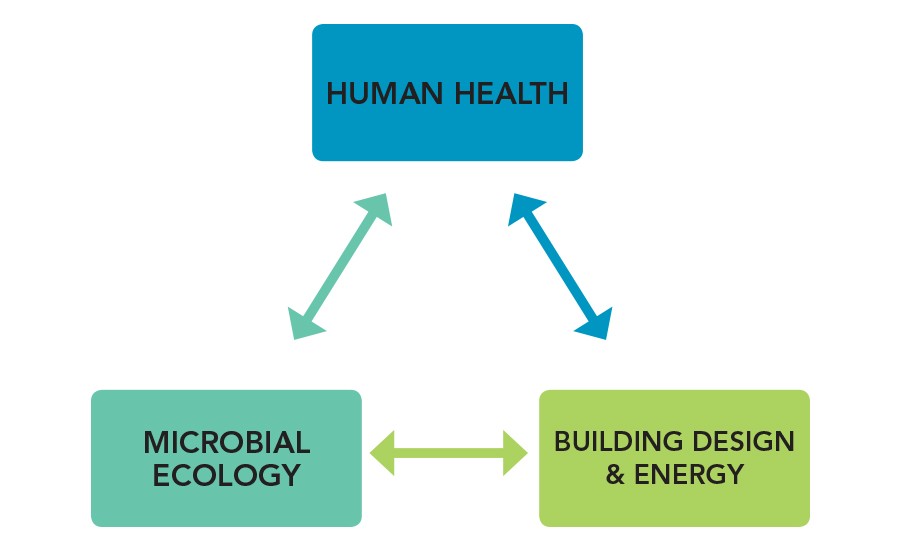How Indoor Air Quality Impacts Our Psychological Development
Mechanical Engineers Are Now Mental Health Professionals

Once again, research has revealed an entire new dimension of the role of indoor air quality in determining human health. This new awareness dramatically expands the consequences of a mechanical engineer’s work. As you design and size HVAC systems for a building, think about this: The resulting indoor climate will shape the mental state of the occupants, influencing their moods, thinking abilities, and even their attraction to sexual partners. This means that your job description now includes mental health care.
How can this be? Most of us will agree that our moods are influenced, to some degree, by how healthy and energetic our bodies feel. We now know that each of us are intimately connected to trillions of microorganisms in ecosystems called our microbiomes. In fact, the number of microbes in our individual microbiomes vastly exceed the number of our human cells. Our personal microbiome is a unique and changing population of bacteria, viruses, and fungi that live on our skin, in our orifices and digestive tracts, and even insert their genes into our sperm or eggs to be passed onto our children.
Research tools that continue to shed light on our relationship with microbes were widely used in sequencing the human genome. Generally known as metagenomics, the techniques have resulted in data that clearly indicates that most microbes are essential and beneficial to our normal, day-to-day functioning. What is additionally surprising is the awareness that bacteria in our microbiomes shapes our moods, thinking, relationships, and psychological development.
This connection between our microbes and our brains seems to be a result of chemical messengers released from bacteria residing in our digestive systems. These messengers travel to our brains, exerting powerful influences on almost every aspect of the human experience.
The human gut contains approximately 2 pounds of living bacteria, which produce chemicals that trigger neurologic activity in our brains, resulting in regulation of our feelings, ability to think and remember events, and even our fundamental patterns of social interactions. Gut microbes are even related to disorders of cognitive functioning and social interaction, such as autism. Most of us can relate to the power of our gut-brain connection when we think back to a time when our intestines where roiling just prior to taking an important exam.
Our exposure to microbes starts during the birth process when we are either colonized with bacteria from our mother or from the caesarian section room. These colonies are then shaped by our ingestion of microbes from food or probiotics; from unintentional exposure, such as through inhaling microbes in the airborne environment; and by the microbe deaths resulting from antibiotics or surface disinfection solutions. The unique community of microbes in each room of a building is determined by which microbes survive and flourish in each individual space. The elements that microbes respond to in indoor spaces are surface materials, indoor temperature and humidity, radiation from light, and other physical forces that continue to be revealed by ongoing research.
We now know that choices about ventilation unintentionally shape indoor microbial ecosystems. For example, mechanical ventilation leads to significantly different airborne bacterial communities in patient rooms and classrooms when compared to natural ventilation. Spaces with low water vapor (humidity) that are mechanically ventilated have less bacterial diversity and a greater number of pathogens.
IAQ shapes our moods far beyond the effects of daylighting, views of nature, and colors. Building microbes selected by indoor ventilation become part of our microbiomes, exerting powerful forces on our gut-brain axis and triggering feelings of happiness, sadness, or mental illnesses.
In this way, mechanical engineers have become mental health professionals for all those who occupy the buildings.

